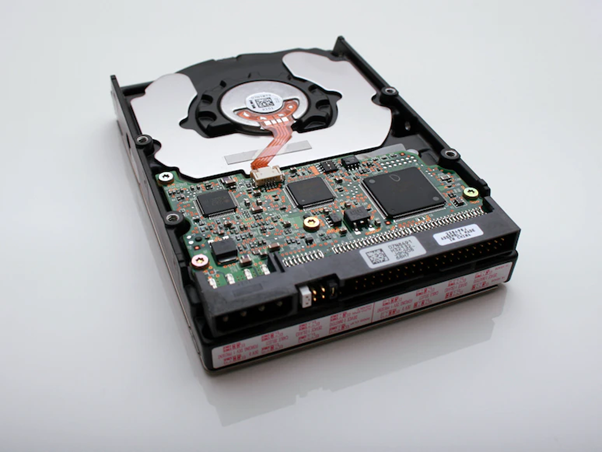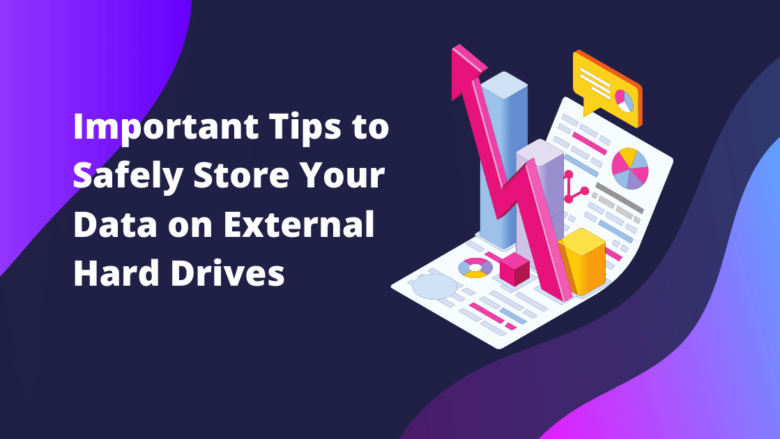External hard drives are very handy when it comes to data portability. Since these storage devices are located outside of your computer, you can take them anywhere you want. Moreover, you can buy external hard drives with a variety of memory storage capacities, depending on your needs.
At the same time, their portability and capacity can put your information at risk of data loss. Hard drives are fragile, and various physical factors could result in the breakdown of your device, namely, dust, fire, and power fluctuation.
So, taking precautionary measures is important when storing your data on external hard drives. In this blog, you’ll find some useful tips to back up and secure your drives from potential threats.
Let’s take a look:
Encrypt Your External Hard Drive
Encrypting your hard drive is one of the proven ways to safeguard your data on a computer. The encryption uses mathematical algorithms for scrambling data. Then, encrypted data can only be unscrambled by the right key that decodes the applied algorithm.
As a result, data is returned to the pre-encrypted state. There are several straightforward ways to encrypt an external hard drive and protect your data from being compromised.
Hard drive encryption prevents malicious access to your data and provides a security layer against hackers and cyber threats. It also protects your data in case your external hard drive is stolen or lost.
Watch the Temperature
Similar to other tech devices, external hard drives should also be operated within a range of optimal temperatures. Most manufacturers say that normal operating temperatures for external hard drives should not be more than 60 degrees. This limitation is because high temperatures can be damaging to hard drives – internal or external.
Therefore, make sure you store your external hard drives in moderately cool temperatures. If you’re not sure about temperatures, we encourage you to contact the manufacturer to get the right information. Never store your external hard drives in spaces like garages, closets, or warm areas.
Never Overload your External Hard Drive Device

Overloading your external hard drive decreases its lifespan by putting strain on its performance. It also increases the risk of wear and tear. All of this can result in complete data loss. So, never overload your hard drive and keep it under capacity to keep it working in optimal mode.
Delete files that are redundant or no longer useful. Alternatively, you can compress these files to keep them from occupying too much of your drive’s space. Consider buying additional storage devices or a cloud-based service as per your changing data storage needs.
Please note that wear and tear on your drive may not be apparent clearly. So, you’ve to take precautionary measures.
Prepare for a Failure
The majority of hard drive manufacturers warranty their products for 3-5 years. But this warranty doesn’t consider physical damage, model, make, or conditions they’re stored in.
No matter whether the failure happens during the warranty period or after that, it can result in the loss of your sensitive data. So, make sure you prepare yourself in advance. In the event of an external hard drive failure, you’re advised to reach out to data recovery experts immediately.
Data recovery experts help keep the problem from exaggerating and help recover lost data timely, safely, and completely. So, it’s best to call them as soon as a data breach or external hard drive failure takes place.
Just make sure you choose a reliable and reputed data recovery service. In addition to protecting your data, it should also help ensure your compliance with legal data-related standards. This is an important step in preventing data breaches.
Be Careful When Traveling with your Device
Ideally, you should always store your external hard drive in a protective case. This protects your drive from scratches, dust, and other threats, which can destroy it. In addition, this ensures durability and safety when loading and unloading your baggage. Whether you’re traveling or not, it’s advisable to always store your hard drive in a protective case.
Maintain the Cable
Generally, people neglect the cable connection and think only about their hard drives. So, don’t be quick to think that your external hard drive has met a failure. Instead, check if the cable is properly connected.
Make sure the cable has been adequately plugged into your laptop or computer. Otherwise, it would result in interruptions during file/data transfers.
Wrapping Up
Recovering your data from an external hard drive is not too challenging. But, physical damage or the ransomware threat to your device can do serious damage. So, you need to be prepared and act immediately if a crisis strikes.
Working with a data recovery expert serves as a quick help. Hopefully, the above tips for storing and backing up your data on external hard drives are useful to you.











FIND US ON SOCIALS